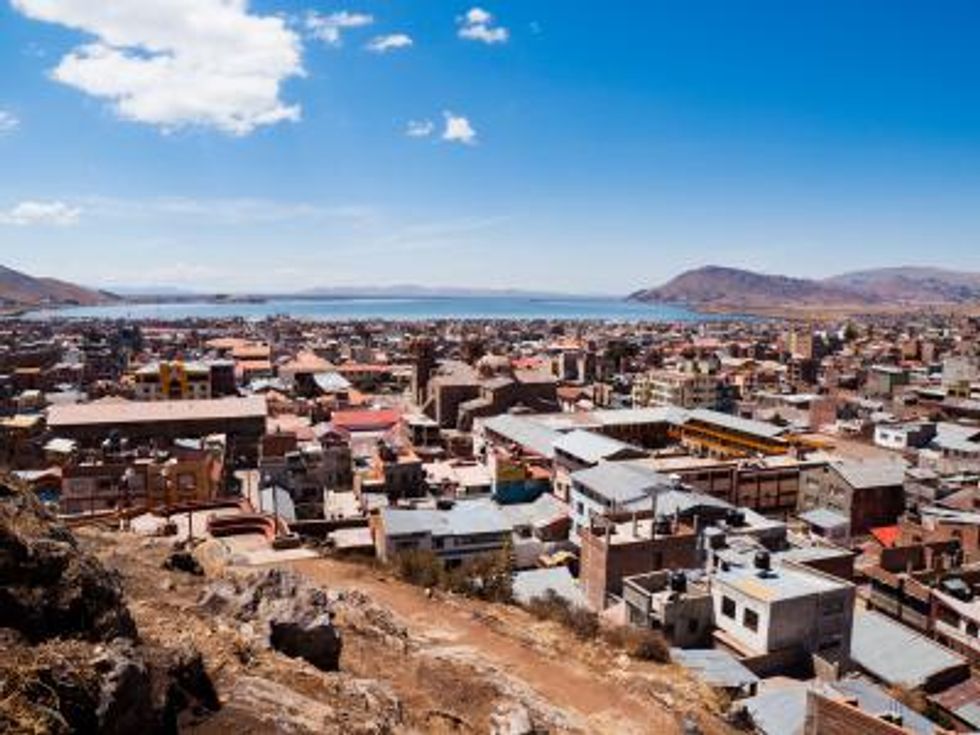Silver Mining in Peru: Looking Forward Through Crisis
Political unrest in the Peru could represent a very uncertain future for foreign investment in the natural resource sector.
By Damon van der Linde – Exclusive to Silver Investing News
Protests against the Canadian-owned Bear Creek Mining Corporation’s (TSXV:BCM) Santa Ana Silver project resulted in five people being killed by police gunfire last Friday at the Juliaca International Airport, located 160km away from the site, and contributed to a severe drop in the company’s share price. This one dramatic event is a culmination of months – or possibly years – of political unrest in the country, and represents a very uncertain future for foreign investment in the natural resource sector.
“It’s not a very good precedent that’s being set right now,” said Chris Thompson, an analyst and Haywood Securities. “I could ask myself how this is going to unwind. If you have a project right now that’s a soft target and being used as a tool to make a point, it’s not a good position to be in.”
The Santa Ana project is located in the southern Peruvian region of Puno, less than 50km from the Bolivian border. Usually, the Peruvian government prohibits mining in this area, but in 2007 granted Bear Creek, among other companies, an exception. A day after the deadly protests by mostly Aymara-speaking indigenous anti-mining demonstrators who say they fear that mines pollute area waterways like nearby Lake Titicaca and leave few local benefits, the concession was revoked.
“We strongly disagree that the present conditions have changed,” said Andrew Swarthout, CEO of Bear Creek, in a telephone conference call. “This project still remains in the best interest of the central government and community.”
Following Saturday’s announcement of the new decree, Bear Creek shares dropped 27 percent to $3.75 after having already lost about 50 percent this spring when the protests began. Bear Creek shares were at an all-time high of $12 in March, 2011.
Swarthout says this new government decision has little to do with claimed environmental and social complaints from the community surrounding the silver project, but was, in reality, instigated by “a small number of radical elements for political motives.”
“We did nothing wrong in our procedures legally. In many respects we went well beyond the requirements under the law, particularly with regard to public consultation,” said Swarthout. “In short, Santa Ana is exactly the kind of project the newly elected government needs in its stated objectives of further reducing poverty.”
Peru is currently operating under a transitional government. The newly-elected government of the more socialist-leaning president, Ollanta Humala will soon be taking office on July 28th. Many – including Bear Creek – say they are disappointed with the administration of outgoing president Alan García, who conceded to the demands of protesters, which include the cancellation of a $4 billion hydroelectric plant proposed by a Brazilian consortium at Inambari, and rescinding a concession for a $950m copper project near Arequipa.
“The government has been very slow to act and part of it is because the national government is leaving in a few weeks and so it is not too interested in trying to solve this situation but just to handle it until the next one,” said Giselle Humani Ober, a Peru-based Conflict Management Advisor with On Common Ground (Tierra en Comun in Spanish), an international consulting company which specializes in the management of social issues in the resource industries with a focus on the mining sector. “In that sense, the current government has not been too enthusiastic and proactive in solving these crises.”
Huamani Ober says that as a new government moves in, it is faced with a difficult task of living up to its campaign promises of redistributing wealth and added benefits that mining can bring to communities, while still retaining the confidence of international investors.
“The problem that I see here is that there are very high expectations among the different social actors that the government is going to solve the problem. If the new government is not going to deliver or will not have the capacities to respond to those expectations, that gap is going to cause a lot of expectation and conflict is going to rise,” said Huamani Ober.
Huamani Ober says that the issues which culminated in this crisis have been developing for years, including complaints of poor government representation and a lack of benefits to local communities. She also says that many attribute this conflict to drug trafficking, smuggling and other illegal commerce in the area, due to its proximity with the Bolivian border.
“If you look at different variables like economic variables like the UN indicators of well-being in the area, this is one of the poorest regions in the country. What you have is that in these areas there have been several regional movements complaining and pressuring the local government to receive more benefits. It’s not just the factor of drug trafficking and commerce but also the absence of the state, and also the inefficiency of the regional government of Puno,” said Huamani Ober. “If you look at other regional governments you see they have been very inefficient in trying to use all the income that mining generates.”
According to The Silver Institute, Peru is now the second-largest silver producer in the world, mining 116.1 million ounces in 2010. This major contribution to the country’s economy and relies heavily on international investment.
“It’s a balance picture. The positives are that the mining sector in Peru is a very important component of the country. The negative point is that there are a lot of these more radical elements of the population with axes to grind,” stated Thompson. “My sense at the moment is that the projects that are most at risk are those in the development stage, Santa Ana being a perfect example. Exploration and development oriented projects are probably more affected by broader-based weakening appetites for exploration internationally.”
Moving forward, Bear Creek says it is taking immediate legal action, with the hopes of finding a political solution.
“Where the crisis in so far and the crisis has been so politicized, the company is not able to do much. At this point, any effort that the company can make at this point appears to lack legitimacy and credibility,” said Huamani Ober. “The government and other legitimate actors at the political level can be the only ones who can stop the violence, the looting and all the crises going forward.”





